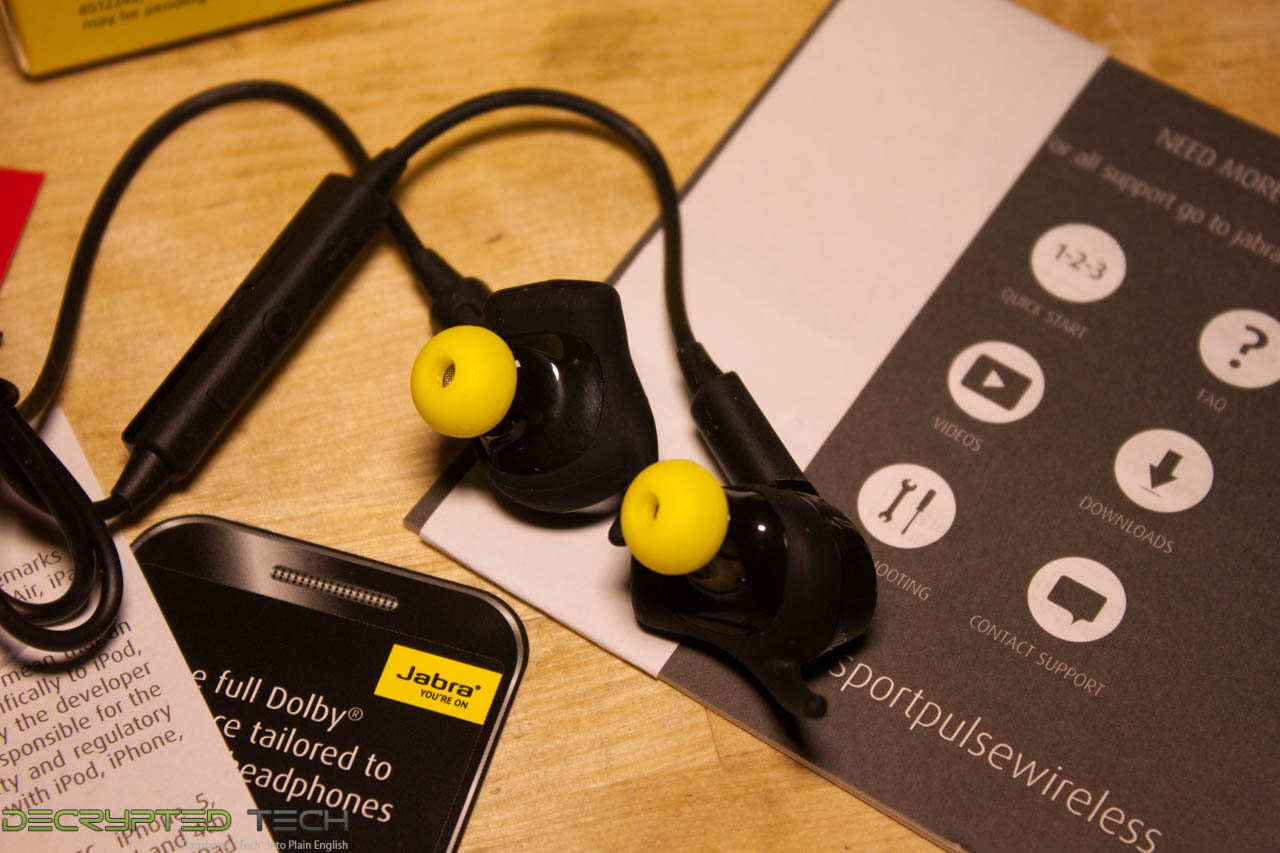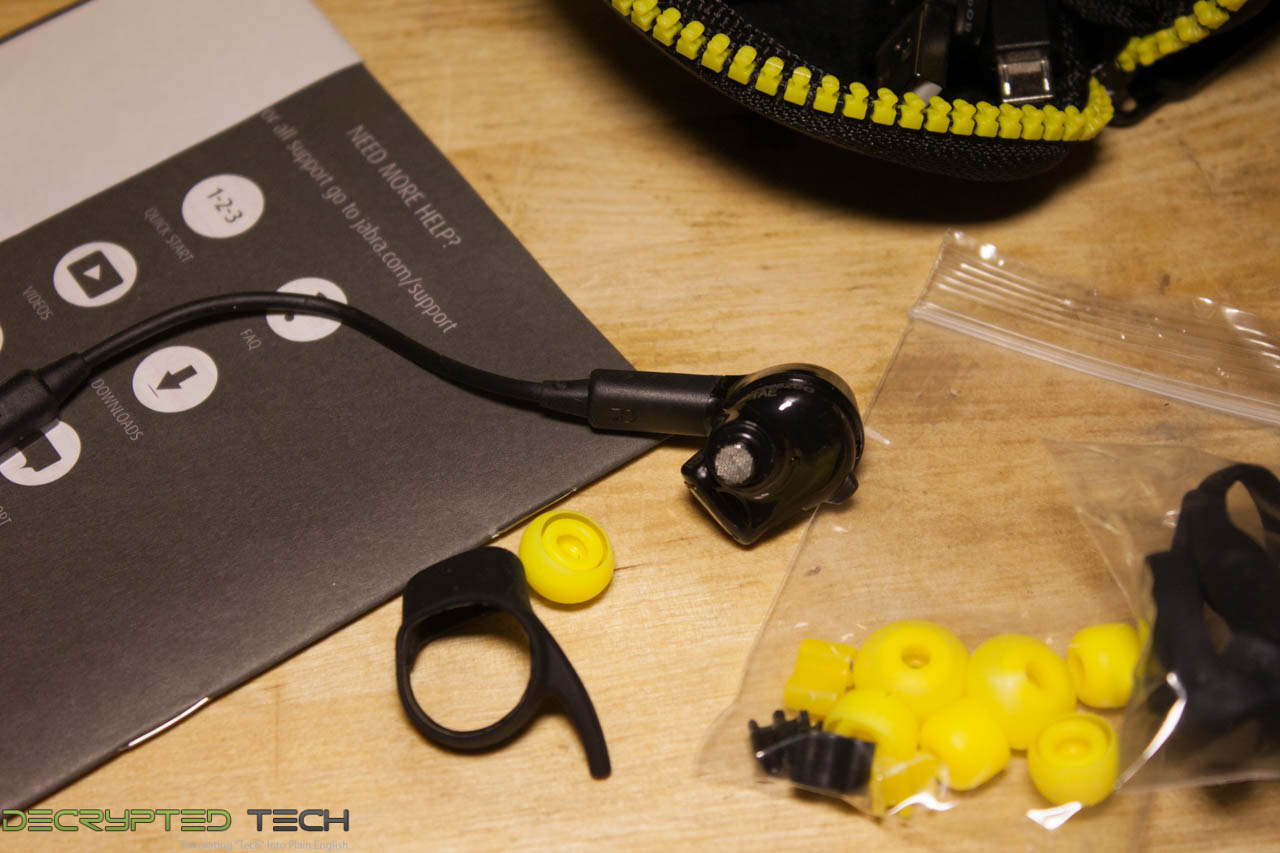The Jabra Sport Pulse -
The Jabra Sport Pulse headset is a Bluetooth headset that has a built-in heart rate sensor. It ties to your phone through a small number of apps that you can use to track your fitness. Jabra also gives you an option to register your headphones and activate a premium sound function. It is a nice touch, but it does tie you to their app if you want to use it. You are not going to get the extra audio quality from your standard media apps.
On the technical side of things the Sport Pulse weigh in at .56 ounces and have a play/talk time of five hours. For standby the Sport Pulse come in at 240 hours before you need to plug them back in to charge the Lithium Ion battery. Jabra lists the charging time as two hours, which if it holds up is really good. It connects to your device using Bluetooth 4.0 (and features low power Bluetooth support), but can be paired using NFC if you so desire. As with most Jabra products you get voice queues for certain items (connected, heartbeat detected etc.).
The drivers are just under 6mm in diameter and are housed in a beefy end piece that houses the main components of the headphones. You get a dynamic range of 20 Hz to 20 kHz, for a small speaker this is a pretty good range. You get 94 dB at 1mW/ 1 kHz and they are 16 ohm speakers pushing a thumping 5mWs in total power. These are not going to rattle your teeth, but they certainly will be able to push some decent sound your way. The microphone is pretty solid as well. It range is right in the middle or what most would consider the human voice (100 Hz to 8 kHz) and has a sensitivity of around 14 dB.
A little less than three inches down from right hand ear piece we find the volume/connection controls. There are volume up and down buttons and a multi-function button that lets you turn the headset on/off, connect them to a device, answer phone calls and more. You get DSP (Digital Signal Processing) built right in as well which is not that much out of the ordinary for headphones these days.
On the left ear piece there is another push button that Jabra calls the Sports Button. This is a multi-function button as well. Some of the features include starting the Sports app, Starting/pausing a workout, listening for on-the-go updates and even allows you to control the heart rate sensor.
The Sport Pulse is compatible with Android and Apple devices and can control either of them using built in features (Apple MFI etc.). To pick up your heartbeat the Sport Pulse uses an optical sensor in the left earpiece similar to the ones used in hospitals. You can turn this on an off by pressing the Sports button and holding it for 10 seconds. You have noise reduction for the microphone and earphones. On paper it seems that the Jabra Sport Pulse are a high-end product. We will have to see if the specs can hold up under our testing.



